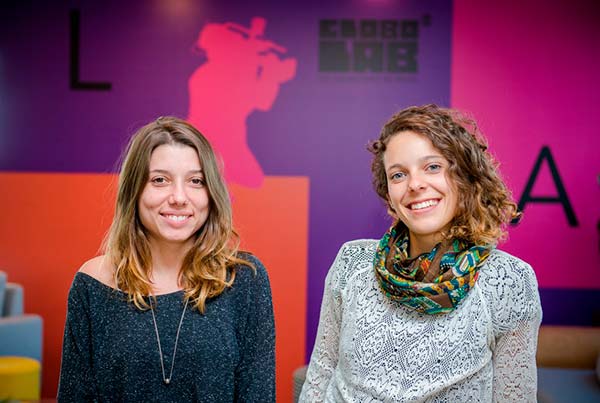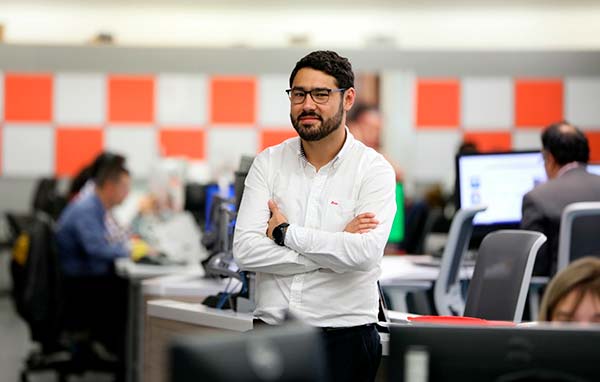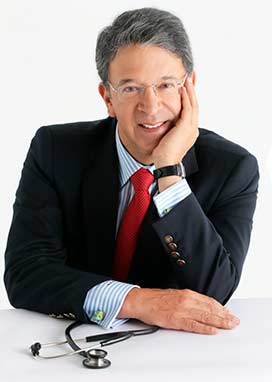Clarissa Levy and Manoela dos Santos Bonaldo from Brazil, and Ronny Suárez and Carlos Francisco Fernández from Colombia join the class of 2020-2021 Rosalynn Carter Fellows for Mental Health Journalism
ATLANTA ... The Carter Center and Universidad de La Sabana in Bogotá, Colombia, in association with the Gabo Foundation, announce the recipients of the two annual fellowships awarded by the Rosalynn Carter Fellowships for Mental Health Journalism in Latin America.
Since 2013, the Carter Center and Universidad de La Sabana have awarded fellowships to journalists in the region to investigate and produce in-depth journalistic work related to mental health or mental illness in Latin America.
Fellowship recipients will receive US$7,000 each and virtual training from The Carter Center at the beginning and end of the fellowship year and mentorship from top journalists and behavioral health experts. Fellowships begin in September 2020.
Initially open to Colombian journalists, the program expanded in 2019 to other Latin American countries, in partnership with the Gabo Foundation. This year, 107 journalists applied from across Latin America.
“We received the largest number of applications since the launch of the fellowships in Latin America, and judges were also excited by the extraordinary quality of the proposals and the wide interest of both digital and traditional media to investigate in-depth the mental health challenges in different countries in the region,” said Víctor García, professor of the Communication School at Universidad de La Sabana and fellowship administrator for Latin America.
The fellowship selection process included three rounds, the first of which involved a committee of the scholarship administrators in Colombia and the Gabo Foundation selecting 12 outstanding projects. In the second round of evaluation, a group of journalists and mental health experts selected finalists for three projects for a final interview with the grant administrators.
The 2020-21 Rosalynn Carter Fellows for Mental Health Journalism in Latin America are:
Clarissa Levy and Manoela dos Santos Bonaldo (freelancers)
The Intercept, Brazil Clarissa Levy and Manoela dos Santos Bonaldo
Clarissa Levy and Manoela dos Santos Bonaldo
Topic: “Mal dos Nervos: Depression and suicide in the countryside” is a proposal for a multimedia report that will investigate the high incidence of mental illness and suicide among tobacco growers in southern Brazil.
Clarissa Levy is a journalist with experience covering human rights, politics, economics and health issues. She directed a documentary short film about the struggle to maintain the traditions of the Quilombo community on the Northwest coast of Brazil. She is a freelance reporter for Swissinfo.ch, The Intercept and other Brazilian media, and works as a multimedia producer for Trovão Mídia, where she develops scripts for podcast series.
Manoela dos Santos Bonaldo is a text and video reporter with experience covering politics, gender inequality and human rights. He received the Fernando Pacheco Jordão Young Journalist Award from the Vladimir Herzog Institute for his work on the inability of the Brazilian State to protect children and adolescents who are victims of sexual violence.
Ronny Suárez Celemín and Carlos Francisco Fernández
El Tiempo, Colombia Ronny Suárez Celemín
Ronny Suárez Celemín
 Carlos Francisco Fernández
Carlos Francisco Fernández
Topic: Multimedia and data journalism proposal that seeks to make visible the mental health status of Colombian health workers who are in the first and second line of response to Covid-19 during the current health crisis.
Ronny Suárez Celemín is deputy editor for health at El Tiempo. He has more than 10 years of experience in the country’s biggest newsrooms of the country. He has specialized in the design of communication strategies and the coordination of journalistic content for the health sector in its medical, scientific, economic and health fields.
Carlos Francisco Fernández is editor for health at El Tiempo. He is a doctor, communicator, administrator, teacher and union manager with more than 20 years of experience in the health sector in clinical, academic, managerial and journalistic areas. He is director of the Rehabilitation Unit of the San Ignacio University Hospital in Bogotá and a professor at the Javeriana University.
For more than two decades, The Carter Center has awarded annual fellowships to over 200 journalists, who have been trained and connected with resources and experts to increase the quality and accuracy of mental health reporting around the world. The program currently operates in Colombia with the inclusion of Latin American journalists, the United States, Qatar and the United Arab Emirates, and previously New Zealand, South Africa and Romania.
The Carter Center offers training, educational material, advice, evaluation tools and technical assistance to La Sabana to develop a sustainable program adapted to the needs of Latin America. La Sabana administers the program for Latin America and is responsible for the process of selecting journalists, organizing conferences and training for the media, adapting the program to respond to local needs and developing an evaluation of regional strategies.
Since the Rosalynn Carter Fellowships for Mental Health Journalism Program was established in 1996, the fellows have produced more than 1,500 stories, documentaries, books and other journalistic work. Their projects have won multiple Emmy Awards, Pulitzer Prize nominations and other prestigious awards.
More information
Follow @CarterFellows on Twitter to learn more about Carter Fellows’ work.
For more information on Latin American fellows, follow the University of La Sabana on Twitter at @unisabana.
Contact: Rennie Sloan, rennie.sloan@cartercenter.org
###
"Waging Peace. Fighting Disease. Building Hope."
A not-for-profit, nongovernmental organization, The Carter Center has helped to improve life for people in over 80 countries by resolving conflicts; advancing democracy, human rights, and economic opportunity; preventing diseases; and improving mental health care. The Carter Center was founded in 1982 by former U.S. President Jimmy Carter and former First Lady Rosalynn Carter, in partnership with Emory University, to advance peace and health worldwide.
Please sign up below for important news about the work of The Carter Center and special event invitations.